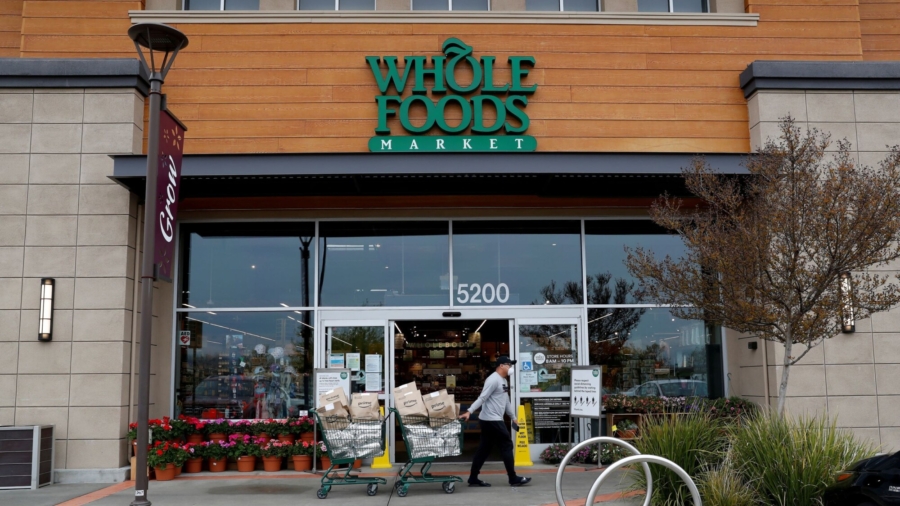A National Labor Relations Board (NLRB) judge has ruled that Whole Foods did not violate the law by banning its employees from wearing Black Lives Matter (BLM) apparel, as the BLM messaging had no connection with a common working goal of the employees.
Administrative Law Judge Ariel Sotolongo ruled that BLM masks, T-shirts, and other apparel worn by Whole Foods employees during the 2020 riots was not protected activity under the National Labor Relations Act because it had little connection to the Whole Foods workers’ jobs.
The NLRB General Counsel, who prosecutes unfair labor practice cases, had argued that workers wore the attire in 2020 to make black coworkers feel safe and supported amid a series of nationwide protests lead by BLM. The general counsel claimed banning the apparel violated workers’ rights to advocate for better working conditions.
But Judge Sotolongo said that regardless of individual workers’ motivations, the general counsel failed to show that workers had a collective goal related to their employment.
“This represents a helter-skelter, throw-mud-at-the-wall attempt at objectively establishing the mutual aid and protection goal of employees wearing BLM messaging,” the judge wrote.
The judge also ruled that while banning BLM attire was legal, a Whole Foods dress code that was in effect from 2013 to 2020 and banned “any visible slogan, message, logo or advertising” was unlawfully broad because it could apply to union pins and buttons.
Whole Foods informed employees wearing BLM apparel that they were violating the store’s dress code, and they could either remove the BLM items or “clock out” and go home. Employees who chose to clock out racked up violations, or what the store calls “points,” leading some to get “discharged,” or fired.
The first occurrence was at a store in Bedford, New Hampshire, followed by stores in Maryland, Indiana, Massachusetts, Pennsylvania, New Jersey, Virginia, Georgia, Washington, and California.
“In many instances employees started donning BLM messaging, by wearing masks, pins or jewelry, after learning that employees in other stores were doing so—and in response to learning that employees were being told by (the store) that they could not do so,” Mr. Sotolongo wrote in the ruling.
The dispute isn’t about the dress code’s existence or whether employees were acting concertedly, but about whether this conduct is protected under Section 7 of the National Labor Relations Act, the judge said in his ruling.
Section 7 “protects the rights of employees to wear and distribute items such as buttons, pins, stickers, t-shirts, flyers, or other items displaying a message relating to terms and conditions of employment, unionization, and other protected matters.”
Whole Foods, which is owned by Amazon, said in a statement that it was pleased with the decision.
“Our diverse culture continues to be a source of great pride for Whole Foods Market and we remain focused on creating both a safe and inclusive workplace for all,” the company said.
Shannon Liss-Riordan, who represents Whole Foods workers who filed complaints with the NLRB, said the decision was disappointing and she was considering her options.
“Unfortunately the ALJ did not take note of the … argument that the workers were protesting Whole Foods’ negative response to their concerted activity,” she said.
Ms. Liss-Riordan also represented a group of Whole Foods workers in a lawsuit claiming the ban on BLM apparel amounted to race discrimination in violation of Title VII of the Civil Rights Act of 1964.
A federal judge in Boston dismissed that case in January, saying Whole Foods had legitimate business reasons to strictly enforce a dress code banning visible slogans or logos. The 1st U.S. Circuit Court of Appeals upheld that decision in June.
Earlier this month, the 1st Circuit heard arguments in a bid by three of the workers involved in that case to revive claims that Whole Foods illegally fired them for wearing BLM masks at work. A judge in dismissing those claims had said there was no evidence that Whole Foods singled out those workers for discipline.
Reuters and CNN Wire contributed to this report.

